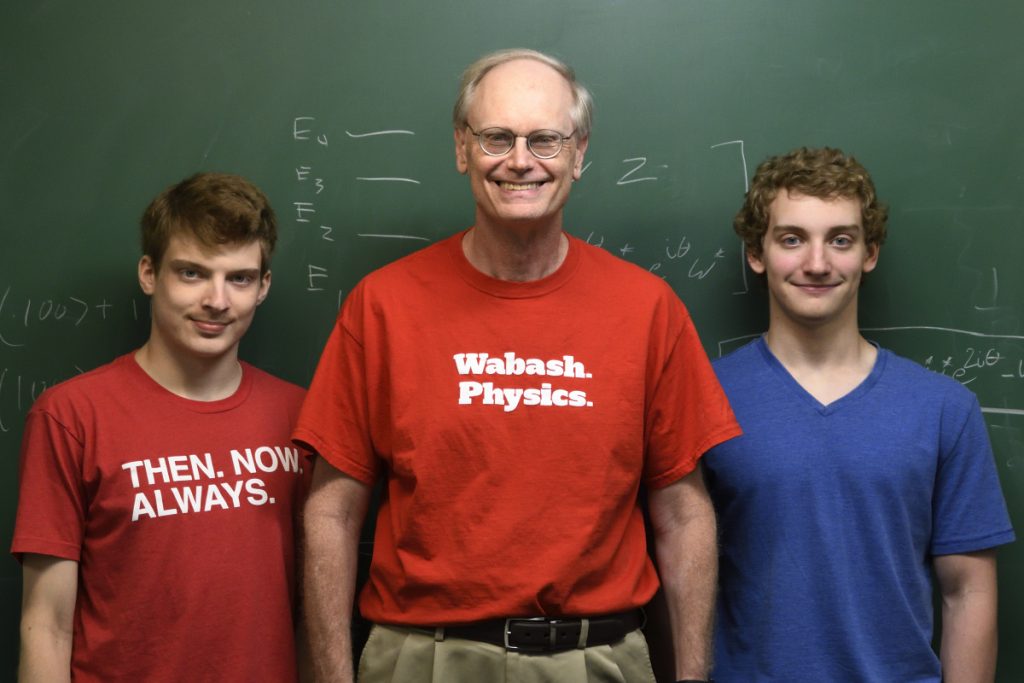Over the course of the summer, I had the amazing opportunity to work with Dr. Dennis Krause of the Wabash physics department as a physics research intern alongside Evan Baldwin. We worked primarily in the quantum realm of physics, learning and investigating the rules at play and how the quantum world is different to the classical one.
My work this summer was to investigate different questions about the phenomenon of quantum entanglement, with a heavy focus on how we create entanglement and how do we destroy it.
For the creation, I learned that entanglement is a phenomenon that can be created very easily in principle, but extremely difficult in practice. Entanglement can be created by having two systems interact, but having them interact in a specific way and starting in a specific state is where the difficulty arises. If we have enough control over how they interact, we can utilize entanglement for many different important and novel scientific discoveries, such as quantum gravity, which has been theorized but no direct proof given.
The destruction of entanglement arises when we no longer consider just two entangled systems but an additional environment. The interactions with the environment cause entangled systems to become classical, a process called decoherence. It has even been theorized and experimented that the interaction with the environment causes our transition from the quantum to classical world.
To further investigate, I created computer simulations of quantum entanglement with the hopes of trying to replicate the above revelations. For future work, there are more aspects to my computer simulation that I did not have time to investigate, aspects which allude to more interesting questions and conclusions.
Perhaps most importantly, I learned this summer what it means to conduct research. To conduct research is to expose oneself to new ways of learning and to a new frontier of knowledge. For many, learning comes mainly from classroom instruction or from sources that have already done the footwork of assembling the knowledge. Research demands something different. It demands someone to learn in new ways and to synthesize knowledge in non-trivial ways.
Research, if nothing else, requires resilience. Answers to questions are almost never directly stated and it may take dozens of hours of work before one find what they are looking for. Research also requires a degree of independence. One cannot be completely reliant on others to operate successfully, and one needs to depend on oneself in order to truly advance as a researcher. I am so grateful towards Wabash College with providing me an opportunity to learn and grow as a student and I am also grateful towards Dr. Krause for all of the help that he offered to help me understand the physics behind Einstein’s famous “spooky action at a distance” quote.

